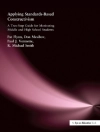From the German Black Forest to the Romanian and Ukrainian shores where it flows into the Black Sea, Europe’s second longest river connects ten countries, while its watershed covers four more. The Danube serves as an artery of a culturally diverse geographic region, frustrating attempts to divide Europe from non-Europe, and facilitating the flow of economic and cultural forms of international exchange. Yet the river has attracted surprisingly little scholarly attention, and what exists too often privileges single disciplinary or national perspectives. Adopting a multidisciplinary approach to the river and its cultural imaginaries, the anthology
Watersheds: Poetics and Politics of the Danube River remedies this neglect and explores the river as a site of transcultural engagement in the New Europe.
Tabla de materias
List of Illustrations
Acknowledgments
Introduction
River Futures
Marijeta Bozovic and Matthew D. Miller
Chapter 1
Danube Limes: The Limits of the Geographic-Cultural Imaginary
Katherine Arens
Chapter 2
Taking the Waters: The Danube’s Reception in Austrian and Central/Eastern European Cinema History
Robert Dassanowsky
Chapter 3
Viennese Blood: Assimilation and Exclusion in Viennese Popular Music
Micaela Baranello
Chapter 4
Caught in the Effluvial Draft: The Fluid Sources of the Folktale
Henry Sussman
Chapter 5
New York on the Danube: The Transatlantic Transference of Habsburg Ethnology and Autocracy in Kafka’s Amerika: The Missing Person
Robert Lemon
Chapter 6
Private Looking and Collective Memory in The Danube Exodus (1998)
Jennifer Stob
Chapter 7
Jelinek and the Roma: A Danubian Tragedy
Karl Ivan Solibakke
Chapter 8
Ravaged Empire: Water and Power in Prewar Hungary
Robert Nemes
Chapter 9
Cold Days in the Cold War on the Hungarian-Serbian Border
Jessie Labov
Chapter 10
Allergic Reactions: Danube and the Ex-centric Imaginary of Europe
Tomislav Z. Longinović
Chapter 11
Against the Stream: The Danube, the Video, and the Nonbiodegradables of Europe
Dragan Kujundžić
Chapter 12
Deconstructing Claims to (Jewish) Victimhood
Amanda Lerner
Chapter 13
Modernization’s Undercurrents: The Folk in Postwar Socialist Romanian Architecture
Juliana Maxim
Chapter 14
Where the Water Sheds: Disputed Deposits at the Ends of the Danube
Tanya Richardson
Bibliography
Notes on Watersheds and Its Contributors
Index
Sobre el autor
Matthew D. Miller is Assistant Professor of German at Colgate University in Hamilton, New York, specializing in twentieth and twenty-first century literature, theater, film, and critical and aesthetic theory. His book project
Mauer, Migration, Maps: The German Epic in the Cold War focuses on works by Peter Weiss, Uwe Johnson, and Alexander Kluge.












